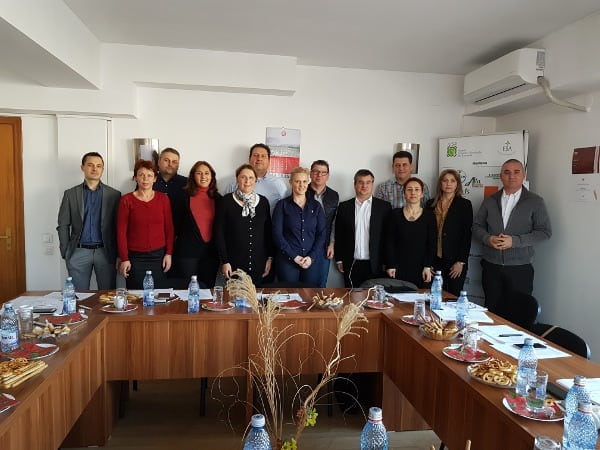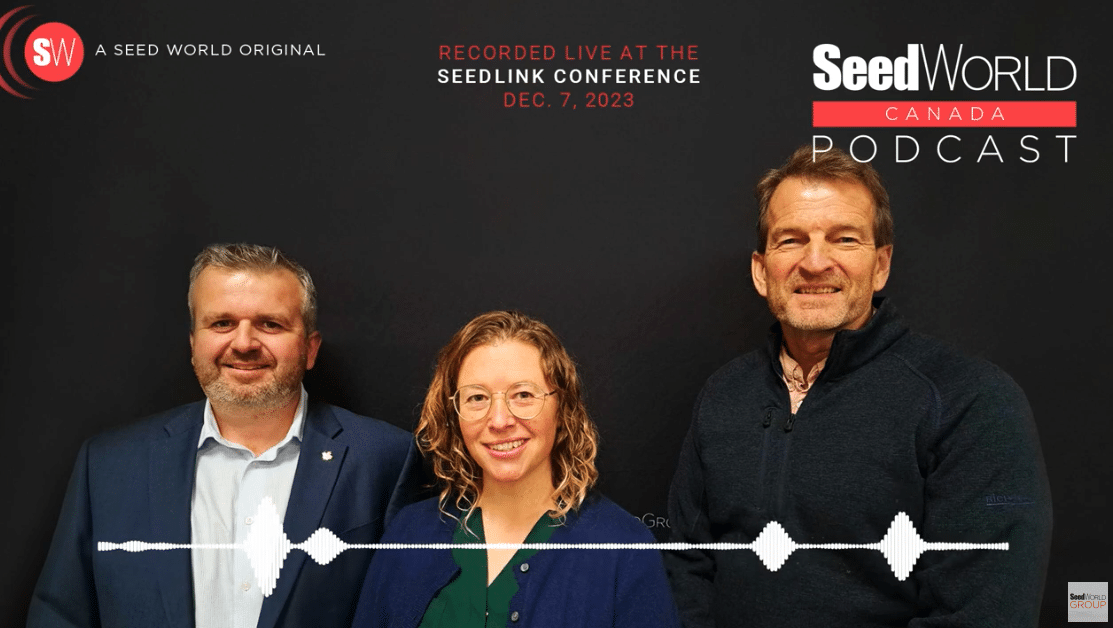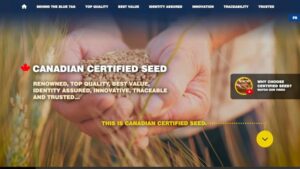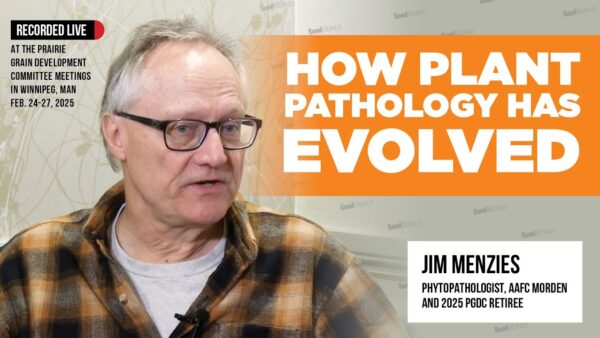ROMANIAN AGRICULTURE AND SEED INDUSTRY
Romania has excellent soil and climate conditions for most crops. In Romania, climatic conditions allow for the multiplication of a large variety of seeds. The most important seed companies in Romania are providing growers with top genetic seeds for intensive agricultural production, focused and based on innovation. With regards to field crops and special reference to corn, the biggest seed companies are also present in the market. In the past decade, Romania has significantly increased economic performance and profitability in the agriculture sector.
After a strong boost in the third quarter, mainly due to consumption, Romania’s GDP growth in 2017 was estimated at 7%. The agriculture sector is estimated to be 4-6% of the total GDP. Romania has 14.7 million ha of farmland, some 9 million hectares of arable land, around 1.8 million growers, the largest EU acreage in corn (around 2.5 million hectares) and they are in the top 5 in the European Union (EU) in cereals (around 2.6 million hectares). Romania could be the second largest producer of agricultural products in the Central Eastern European region; the biggest production in Romania is determined by crops (up to 70%), followed by animal production (± 30%) and agricultural services (± 1%). The main produced agriculture products are wheat, corn, barley, sugar beets, sunflower seed, potatoes, grapes, pork, poultry, milk, wool and eggs.
2017 has been an exceptional year for Romanian agriculture, with productions at unprecedented highs, including the country registering the largest wheat production in history — over 10 million tonnes — which means an average of 4,836 kg/ha. Romania is the leader of sunflower production in the EU, with production of over 3.150 million tonnes.
[tweetshare tweet=”2017 has been an exceptional year for Romanian agriculture, with productions at unprecedented highs, including the largest wheat production in history. ” username=”EuropeanSeed”]
The farm structure in Romania is dominated by family farms, but their size is very small, with an average of 3.66 ha. This means Romania has the third smallest average farm size, only above Malta and Cyprus.
Romania compared to all other EU Member States has an agriculture sector that is affected by high land fragmentation; almost 75% of farms in Romania are under two hectares. Farms with more than 1,000 hectares represent just 0.5% of the total number of farms but is exploiting 49% of the total arable land. In comparison with other EU countries, the number of middle sized farms with between 10 and 100 hectares is small.
Out of 2.5 million hectares of corn, only 1.7 million hectares are cropped using certified seeds. The short-term outlook foresees a reduction in yield volatility, diversification of crop types and further investment in protein-based crops (peas, soybean) with the possibility for new crop segments to develop (mustard). Some challenges are related to poor infrastructure, regulatory challenges and lack of irrigation systems.
In 2016, there were 133,000 hectares dedicated to seed multiplication, for cereals the use of 470 varieties, 140 technical and oleaginous crops types and 62 plant type use in feed production.
The Romanian seed industry is one of the most important factors in the country’s agriculture industry.
Today, more than 15 companies are thriving in the country, with only one being a Romanian owned state company.
In Romania, market volatility is associated with the yield profitability, commodity price and trade, but also the risks of specific crops. Some of the crops have known a major growth during the last number of years due to a good profitability, as winter oil seed rape registered nearly 30% annual growth compared to the previous year. Also, soybean is one of the most promising crops, while wheat is decreasing due to lower trading prices and winter oil seed rape acreage allocation by the farmers.
[tweetshare tweet=”The Romanian seed industry is one of the most representative industries in agriculture. ” username=”EuropeanSeed”]
THE ROMANIAN SEED INDUSTRY ALLIANCE (AISR)
AISR was founded in 2012 in Romania with the objective to represent the seed industry and to promote the use of certified seeds.
The association members represent 85% of the total seeds market, with 11 multinational seed companies present in Romania that produce and market high quality seeds adapted to local climatic conditions.
The member companies of the AISR are: Advanta Seed; S.C. Bayer SRL, Caussade Semences Romania SRL., Euralis Seminte SRL., KWS Seminte S.R.L, Limagrain Central Europe SE, S.C. Maisadour Semences SRL, Monsanto Romania SRL., Pioneer Hi-Bred Romania SRL., RAGT Seminte, and Syngenta AGRO S.R.L. The association also has three honorary members, which include INCDA-Fundulea, PROCERA, and the Institutul de Fitotehnie PORUMBENI-Republic of Moldova.
AISR has been a member of the French Chamber of Commerce and Industry in Romania (CCIFER) since 2017. AISR is an independent professional association with activities covering different crops: winter crops, spring crops, vegetables, cereals, feed, potatoes, sugar beet, oleaginous crops, corn, sorghum.
ORGANIZATIONAL STRUCTURE OF THE ASSOCIATION
The activities of the association are coordinated by the General Assembly that votes annually for a Board of Directors represented by a president, vice-president and a treasurer. Currently, a KWS company member is president, a Euralis representative as vice-president and Syngenta as treasurer and Caussade as Censor. The association is managed by the General Assembly that meets once a year for voting the activity plan and budget, while the Board of Directors and working groups meet ad-hoc and when needed. The association has four working groups: Technical WG, Communications WG, Regulatory WG, and marketing WG. The association leads an open dialog with all member seed companies and with all other professional associations and related associations in agriculture.
The objectives of the association are: support the development and promotion of certified seeds in Romania (seed certification simplified procedures, open dialog with regulatory and policy makers); defend intellectual property rights (patent recognition, PVR based on EU regulations, control and monitoring of counterfeit seeds); maintaining an open transparent dialog with all professional associations and providing necessary information and data to competent authorities, participating in public consultation on seed related matters; communication across all stakeholders (growers, public and authorities) regarding the benefits of certified seeds and R&D in seeds development and innovation (through different events).
IMPORTANT TOPICS ADDRESSED THROUGH THE ALLIANCE
One of the key topics and activities the association tries to address is the awareness in raising and promoting to growers of the use of certified seeds to boost yields, competitiveness and importance of R&D in seeds innovation and benefits. AISR is addressing the issue around counterfeit seeds. In a new project just started in autumn of 2017 — The monitoring of counterfeit seeds in Romania — AISR is working with a private detective company and are monitoring non-traditional channels for marketing of seeds, awareness to growers related to packaging and unusual pricing. In 2016 and 2017, the association collaborated on an important project with the ROMAPIS beekeeper association to study and communicate to growers and beekeepers about honey-bearing properties of main sunflower and rapeseed hybrids marketed in Romania. Communication to growers related to sustainable farming practices, direct benefits of certified seeds and innovation in seed genetics are all key important topics we are addressing.
[tweetshare tweet=”Key topics of the Romanian seed association are the awareness about use of certified seeds to boost yields, competitiveness and importance of R&D in seeds innovation” username=”EuropeanSeed”]
ACHIEVEMENTS
In 2015 we organized with European Seed Association (ESA) the Workshop on Intellectual Property in the EU. In 2016 we held a workshop on communication on Challenges of the Seed Industry, followed by a 2017 workshop with the AgroBiotechRom (endorsed by the Romanian Agriculture and Forestry Academy) on Innovative Alternatives in Plant Breeding – A Fundament for Sustainable and Efficient Agriculture. We also started hosting field days two years ago, “Certified Seeds Day”, in different regions of Romania where growers are still suing farm saved seeds (east and south-west regions of the country). AISR is always present at the Annual Corn Day where we talk to growers. Close collaboration with different institutions belonging to the Ministry of Agriculture-the central Laboratory for Seeds and Seedlings Quality and Certification, country seed laboratories, national Phytosanitary Agency and the State Institute for Variety Testing and Registration. The association is also very active in meetings with grower’s organizations, other industry associations and media.
CHALLENGES FOR THE FUTURE
In the future we will need to work on a number of items, such as how to further increase crop productivity and efficiency through the use of certified seeds, defending breeder’s rights and royalty collection for the use of farm saved seeds, advocacy around the future EU legislation on seeds, advocacy and defense of agricultural technologies (GMO, crop protection, seed treatment).
COOPERATION WITH OTHER ORGANIZATIONS IN EUROPE
Romania is member of the OECD and participates in UPOV and CPVO meetings. As member of the ESA since 2003, AISR contributes to promoting the interests of the seed industry to the European Parliament, European Commission, and European Council. AISR participated to the meetings of AGPM, FNPSMS and the Sorghum Symposium that have taken place in Romania in 2016 and supports the ESA programs and initiatives. AISR is also participating annually to ESA annual meetings, which is an important occasion to meeting industry representatives in the seed sector and to align with all ESA initiatives. The 2017 ESA Campaign #EmbracingNature is strongly supported and embraced by AISR.
GM CROPS
Romania has a long history and tradition in supporting the use of GM technology. After accession to the EU, Romania was obliged to ban the cultivation of GM soybeans that had reached an acreage of around 200,000 hectares in 2017. Romanian farmers are frustrated about the ban as they no longer have access to this technology – especially GM soybean. Romania remains open to the adoption of new technologies like GM provided there is a profitable direct benefit for growers and the country remains open to science. At this time, there is no cultivation of GM maize in Romania (MON810) approved for cultivation in the EU as there is much bureaucracy for growers and there is little interest from traders for GM corn.
[tweetshare tweet=”Romanian farmers remain frustrated about the ban on GM crops as they no longer have access to this technology – especially GM soybean. ” username=”EuropeanSeed”]
ROYALTY COLLECTION
As far as Romania is concerned, there is no system for Royalty Collection in place for farm saved seed. There is no legal entity to deal with the small growers or those growers that still use farm saved seed. The farm saved seed are from self-pollinating species (wheat, barley, rye, soybean, oil seed rape, peas, etc.) that are varieties and not hybrids. Referring to corn, there are farmers with small acreages that still use seed from barns, mainly in Transylvania, Oltenia and Moldova region of Romania. Current legislation does not link subsidies to the use of certified seed.
ROMANIA’S POSITION ON THE NEW PLANT BREEDING TECHNIQUES
Currently there is a debate in Europe about new plant breeding techniques. To make an assessment under existing laws, it is important to differentiate among the various methods. Some can be classified as genetic engineering. Others are comparable to traditional breeding: they maintain the species barrier and result in plants that could have also occurred naturally, which makes them nature-identical as products. AISR advocates those latter methods being evaluated as conventional breeding methods. Results, identical to nature itself, lead us to the basic conviction that plants should be judged by their characteristics and by their concrete properties when used as food for humans and as animal feed, as well as by their interaction with the environment. The proper assessment of the new methods and an appropriate classification of products using these new methods is a prerequisite to fostering development in plant breeding in Europe, with breeding being an integral part of sustainable and modern agriculture. Plant varieties developed through the latest breeding methods should not be differentially regulated if they are similar or indistinguishable from varieties that could have been produced through earlier breeding methods. Therefore, we entirely endorse the viewpoint of the international seed industry, proposing that the genetic variation in the final plant product would not be covered under the scope of existing biotech/GMO regulations for plants if: there is no novel combination of genetic material or the final plant product solely contains the stable insertion of inherited genetic material from sexually compatible plant species, or the genetic variation is the result of mutagenesis – spontaneous, induced or targeted. Together with the farmer associations, our alliance is fully committed to build trust with consumers, investors, regulators and the society at large when bringing new valuable and safe products on the market. We want to engage in a meaningful dialogue on these new innovative methods that offer a new perspective for plant breeding – especially in Europe. We are convinced that with these methods we will embark upon a path that meets the demands of current political and social realities.
[tweetshare tweet=”Plant varieties developed through the latest breeding methods should not be differentially regulated if they are similar or indistinguishable from varieties that could have been produced through earlier breeding methods. ” username=”EuropeanSeed”]
Where on the Web: www.aliantasemintelor.ro
Story submitted by ASIR












